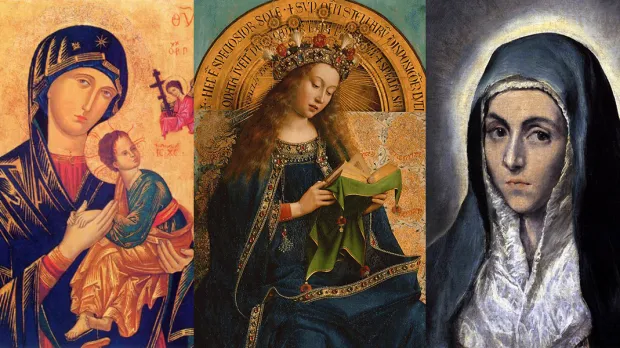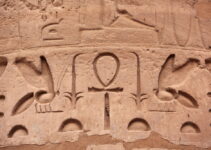
The role of Mary in Catholic doctrine has been a significant theological theme that continues to inspire faith and devotion. This article delves into the various facets of Mary in the Catholic Church, her titles, significance, and the doctrines that have shaped the Christian faith.
Table of Contents
Mary in Catholic Doctrine
Virgin Mary in Catholicism
The concept of the Virgin Mary holds a special place in Catholicism. Known as the Mother of God, her purity and obedience make her a central figure in the faith. Virgin Mary represents the epitome of grace, humility, and devotion to God’s will.
Mary’s Role in Christian Faith
What makes Mary such an essential figure in the Christian faith? Her willingness to say “yes” to God set the course for salvation history. Mary’s acceptance of her role in bearing Jesus Christ is a profound example of faith and obedience.
Mary’s Significance in Catholicism
Mary’s significance in Catholicism goes beyond her biological connection to Jesus. She represents the Church and is seen as a model for all Christians. Her life is a testament to the transformative power of faith and devotion.
Mother Mary in Catholic Belief
Belief in Mother Mary resonates deeply with the Catholic faithful. Her motherly care extends to all of humanity, making her a symbol of compassion, empathy, and love.
Mary, as Mother of God
As the Mother of God, Mary’s role in salvation is paramount. Her divine motherhood transcends human comprehension, yet her humility and love make her relatable to all believers.
Mary’s Immaculate Conception
The doctrine of Mary’s immaculate conception is a central belief in Catholicism. It states that Mary was conceived without original sin, preparing her to be a pure vessel for Christ’s incarnation.
Marian Devotion in Catholicism
Devotion to Mary is an integral part of Catholic worship. From prayers to rituals, Marian devotion reflects the deep love and respect for the Mother of God.
Mary’s Intercessory Role
What does Mary’s intercessory role entail? In Catholic views of Mary, she is seen as a mediator who intercedes for believers. Her closeness to Christ allows her to act as a bridge between humanity and divinity.
Devotion to Mary in Catholicism
The prayers, feast days, and practices dedicated to Mary demonstrate the devotion to Mary in Catholicism. Her role as a spiritual mother inspires faith and love among the faithful.
Mary’s Titles in Catholicism
Mary’s titles in Catholicism reflect her multifaceted role in the Church. She is called the Queen of Heaven, Our Lady of Sorrows, and the Star of the Sea, among other titles.
Catholic Views on Mary
Understanding Catholic views on Mary helps to comprehend the profound depth of her role in the faith. She is revered, not worshiped, and her virtues guide believers’ spiritual journey.
Mary’s Role in the Church
Mary’s role in the Church is not just historical. She remains a living presence, guiding and nurturing the faithful. Her example continues to lead Christians toward holiness and spiritual growth.
Mary’s Role in Redemption
Mary’s role in redemption is a critical aspect of Catholic doctrine. Her “yes” to God’s plan set the stage for Christ’s saving work, making her a key player in the history of salvation.
Mary and Catholic Tradition
Mary and Catholic tradition are intertwined. From the early days of the Church, Mary’s life and virtues have been celebrated, laying the groundwork for various Marian dogmas in Catholicism.
Mary’s Perpetual Virginity
The belief in Mary’s perpetual virginity asserts that she remained a virgin before, during, and after the birth of Christ. This concept has theological significance, underscoring her unique relationship with God.
Assumption of Mary in Doctrine
The Assumption of Mary in doctrine is the belief that Mary was taken up into Heaven, body, and soul. This celebration honors her unique role and highlights her continued intercession for the faithful.
Mary and the Holy Spirit
Mary and the Holy Spirit share a unique connection. Through the Holy Spirit, Mary conceived Jesus, linking her intimately with the third person of the Holy Trinity.
Mary and Catholic Spirituality
Mary’s role in Catholic spirituality is profound. She serves as a guide, leading believers closer to Christ through her example of faith, obedience, and love.
Mary’s Role in Liturgy
The liturgical celebrations dedicated to Mary, such as feast days and Marian seasons, acknowledge her significant role in the Church. Her presence in liturgy deepens the understanding of faith and salvation history.
Mary’s Role in Salvation History
Understanding Mary’s role in salvation history provides insight into God’s plan for humanity. Her obedience and humility laid the foundation for Christ’s mission, linking her inseparably to the story of redemption.
Mary and Catholic Faith
Mary and the Catholic faith are interwoven. Her life reflects the Church’s core beliefs and serves as a model for living a faith-filled life.
Mary’s Role in Christian Life
How does Mary’s role in Christian life affect believers today? Her virtues continue to inspire, guiding Christians in their daily walk with God.
Mary’s Role in Catholic Devotion
Mary’s role in Catholic devotion is multifaceted. From personal prayers to communal celebrations, her presence enriches the Church’s spiritual life.
Mary’s Role in Faith and Worship
Mary’s role in faith and worship extends to every aspect of Catholic life. Her example inspires believers to grow in faith, trust in God, and worship with heartfelt devotion.
Mary and Catholic Beliefs
The intricate connection between Mary and Catholic beliefs demonstrates her vital role in the Church. She is not merely a historical figure but a living presence that continues to shape and inspire faith.
Mary and the Church’s Teachings
Mary’s role in the Church’s teachings extends to doctrine, morality, and spirituality. Her life is a blueprint for living the Gospel, and her intercession helps guide the Church’s mission.
Mary’s Place in Catholic Teaching
Mary’s place in Catholic teaching is central. From the catechism to theological studies, her life and virtues are explored, helping believers understand their faith more deeply.
Mary’s Role in Christian Beliefs
The universality of Mary’s role in Christian beliefs extends beyond Catholicism. Her life resonates with Christians of various denominations, highlighting the unity of the Christian faith.
Conclusion
Mary’s role in Catholic doctrine is profound and multifaceted. She serves as a mother, guide, and intercessor, shaping the faith and devotion of millions of believers. From her titles to her virtues, Mary continues to be a living presence in the Church, guiding us toward Christ and the life of holiness.
FAQs
- What is the significance of Mary’s Immaculate Conception in Catholicism? The Immaculate Conception refers to Mary being conceived without original sin. This unique grace prepared her to embody purity and holiness as the Mother of God.
- How does the Assumption of Mary differ from her Ascension? The Assumption refers to Mary being taken up into Heaven, body, and soul by God’s divine power. It is a unique privilege granted to her, while the Ascension refers to Christ’s ascent to Heaven by His power.
- What are some common forms of Marian devotion in the Catholic Church? Marian’s devotions include prayers like the Rosary, the celebration of feast days, Marian apparitions, and consecration to Mary.
- How do Mary’s titles reflect her role in the Church? Mary’s titles, such as Queen of Heaven and Mother of Mercy, reflect her multifaceted role as a mother, intercessor, and guide in the Church.
- Why is Mary referred to as the Mother of God? Mary is called the Mother of God because she gave birth to Jesus Christ, the second person of the Holy Trinity. Her divine motherhood emphasizes her unique relationship with God and essential role in salvation history.
